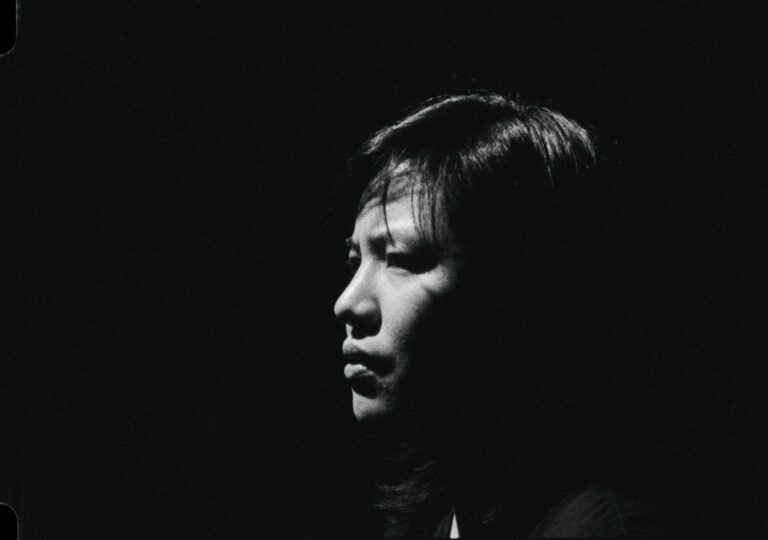A Teenage Boy’s Reaction to John and the Hole – a Sundance 2021 Film Review
John and the Hole is a psychological thriller, centering around a teenage boy who drugs and drops his family into an incomplete fallout shelter (the hole).
The movie has great cinematography, not too dark and gloomy, perfect for the theme. It’s a thriller so the lighting isn’t bright and sunny but it’s not a hard core Texas Chainsaw kind of scary thriller either. In fact, I wouldn’t really call this movie scary at all. It’s more unsettling and intriguing than anything else. It keeps you at the dodge of your seat guessing what will happen. Ironically, there’s also a level of dark comedy, which adds a layer of excitement to the film.
This story was actually originally based on a short story and I feel that it being based on a short story played a role in the development of the unconventional premise. Short stories tend to have really bizarre premises and I think that it can lead to really fun ideas like this movie.
When interviewed about the movie Pascual Sisto, director of John and the Hole, was asked “What makes a 13-year-old John Tick as a person, in your opinion?” Pascual had this to say:
“Well that’s the thing, nothing really makes him tick. That’s a better way of putting it. We see him in what would appear as an average, even privileged adolescent life and while he does things most kids would enjoy doing, he’s not enthusiastic about them. He’s trying to feel things, and realizing he has a pervasive yet undefined apathy growing inside of him. He wants to feel things on his own terms, anything — whether it’s exhilaration or tension or fear. Throwing his family in the hole is his way of dealing with the numbness.”
-Pascual Sisto
That really gets to the core of what the movie is about. John isn’t exactly a bad person, just fundamentally different, almost a brokenness inside of him and kind of this lack of understanding when it comes to the world and the people in it. He does outrageous things to fill that void. However in the end, it turns out that his family’s absence only made the void bigger.
As a teenage boy, I could easily identify with John. I remember what I loved most about being away from home during my Summer Discovery programs at Georgetown and UCLA was the feeling of independence. I often feel overwhelmed about things I can’t control and it was nice feeling like I was the one in charge of making all of my own decisions. However, like John learns, we need our families. They ground us and give us a sense of identity. I think the existential question of what’s the stronger drive, seeking connection or craving independence, is a core part of being and figuring that out can be challenging for many of us. When that is compounded by a sense of deep apathy it’s hard to see how one could go to extremes. We may not go to the extremes John went, but figuratively dropping people in holes (including our families) in one way or another is definitely something we all do from time to time.
I really enjoyed this film. I think it’s great for families to watch together, especially families with teenagers. I’d imagine it would lead to some pretty interesting conversations as it did with me and my mom.

SYNOPSIS
A dark fable that dwells in the shadows of adolescent angst and imagination, JOHN AND THE HOLE presents a landscape both disarmingly familiar and deeply disquieting: a kid, insulated by privilege yet fixated on independence, decides to hold his family captive in a hole. From debut filmmaker and artist Pascual Sisto and Academy Award-winning writer Nicolás Giacobone, this unsettling psychological thriller co-stars Michael C. Hall, Jennifer Ehle, and Taissa Farmiga and features a breakout performance by Charlie Shotwell in an enigmatic exploration of what it means to grow up.
A CONVERSATION WITH FILMMAKER PASCUAL SISTO & WRITER NICOLÁS GIACOBONE

LET’S TALK ABOUT THE HOLE.
PASCUAL SISTO:
I wanted to show John connecting all these dots about his life. For John the bunker is a safe place, a sort of purgatory or a waiting room where he can keep his family away while he lives on. His family doesn’t see it in the same way, obviously. For them it’s completely unexpected. The hole is a mystery to him, it feels right. Putting his family in it becomes a visceral act, something that has to be done, like a rite of passage.
NICOLÁS GIACOBONE:
A hole is a universal leitmotif. Holes are a source of mystery and fear. What’s down there? What can you throw in them? What if you got stuck in one and couldn’t get out? Holes are all over literature and fairy tales, sometimes metaphoric and sometimes not. But we wanted to have a real reason for the hole to exist — it wasn’t a question of entering into some kind of fantasy realm.
We worked hard to find exactly how much we needed to tell. One could assert John suffers from affluenza—the affliction in which people who seemingly have everything in life are unable to feel much of anything. We were interested in that concept, but we were careful not to say any one thing because every time we got close to a possible explanation for John’s actions the whole story shrunk.
Discover more from DG Speaks
Subscribe to get the latest posts sent to your email.





